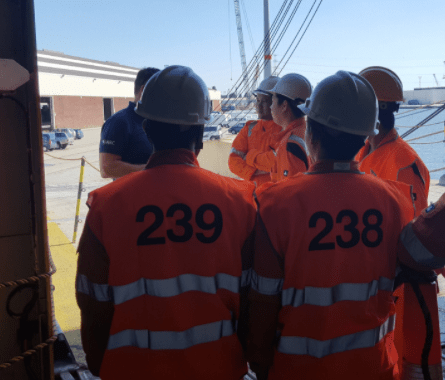A video by Cardiff University and with funding support from Lloyd’s Register Foundation based on interviews with seafarers tells of demands for cash and provisions in ports and the theft of fittings on critical safety equipment.
One seafarer said, “There are ports where cigarettes and alcohol are so important that sometimes the pilot boat will refuse to come alongside unless you have a man on the deck waving the cartons for them to take. So that’s a lot of pressure.
“It causes a lot of discomfort and it causes enough discomfort for grown men to shed tears. We feel powerless. It’s very degrading.”
Brass fittings can make rich pickings for thieves comprising equipment.
Another seafarer said, “There are certain ports we go to, where we’ve identified theft is quite high. So, before we arrive, we go around the ship, we remove all those brass fittings so they can’t be taken away. It makes you nervous and worried. We’re trained to deal with fires but we’re not firefighters, so having the safety critical equipment taken away from you because of pilfering leads to that extra stress.”
Professor Helen Sampson of the Seafarers International Research Centre (SIRC), who led the research said, “Our research provides insights into the challenges frequently faced by seafarers. We have reports of port officials engaging in a variety of corrupt practices which include demands for facilitation gifts, theft of provisions, demands for cash payments, theft of brass fittings and equipment and fraud in relation to the supply of fuel, known as bunkers.
“The amount of resistance they can mount in the face of such practices is limited and they are increasingly constrained by relatively new company policies aligning with anti-corruption legislation. This places them in an unenviable position when they arrive in ports and are met with demands for things, which they cannot provide, from powerful individuals who can arrange for the delay and detention of a ship at considerable cost to their employers.”
Seafarers who fear being sacked can resort to make payments with their own personal money or vessel supplies to extent the crew face rationing as a result.
Sampson will present the findings and show the film to an industry audience at the CrewConnect European conference in Amsterdam in May.

